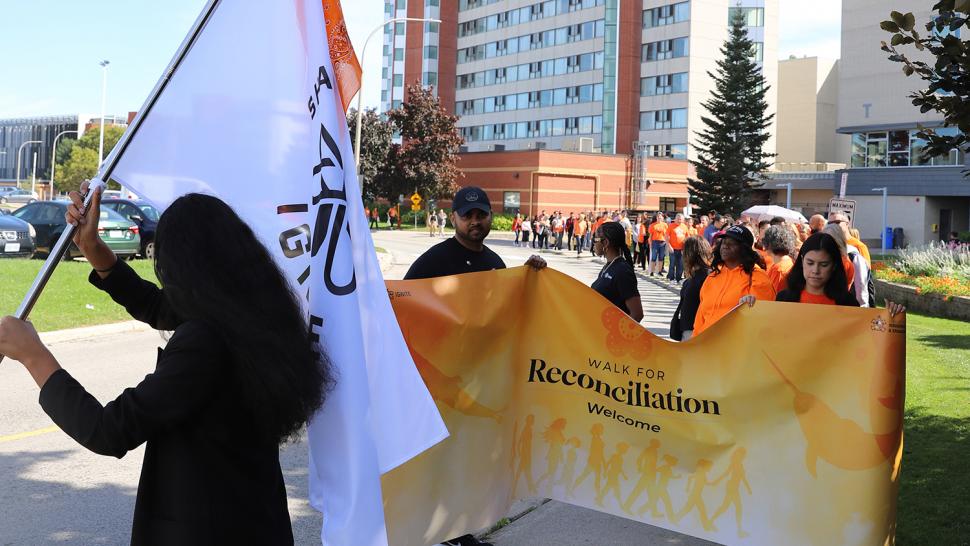
The Humber Polytechnic community donned orange on September 26 to raise funds and show their support while taking part in the Walk for Reconciliation.
September 30 is the National Day for Truth and Reconciliation, which is also known as Orange Shirt Day. The day encourages Canadians to honour the survivors of residential schools while reflecting on the loss of children and the acts of cultural genocide that attempted to break the spirit and legacies of Indigenous families and communities.
It’s a day that was created to commemorate the tragic legacy of residential schools and their lasting impact on Indigenous peoples and communities to this day.
Humber honours those touched by residential schools every Orange Shirt Day by hosting events and initiatives leading up to September 30 and wearing orange shirts with the slogan “Every Child Matters.”
This year’s walk was to increase visibility and awareness around the issue while also supporting Humber’s Reconciliation efforts.
Gabi Hentschke, sustainability communications and engagement coordinator with Humber's Office of Sustainability, took part in the walk again this year after participating in last year's event. Hentschke said getting involved in the Walk for Reconciliation was a way to show both her and her office’s support for the residential school survivors and the Indigenous community.
“It’s incredibly important for us to learn this history and to hear the stories of survivors,” said Hentschke.
The event, which was hosted by IGNITE in partnership with Indigenous Education and Engagement and the Office of Equity, Diversity, Inclusion and Belonging, began with powerful remarks from two Mohawk Village Memorial Park Residential School survivors. They spoke of the cruelty and abuse they suffered and how they felt isolated and alone after being separated from their families.
The residential schools separated Indigenous children from their families and communities and were designed to strip away their traditions, cultural practices and languages. The schools were run by churches and were rampant with physical, mental, emotional and sexual abuse. It’s estimated that more than 150,000 Indigenous children were sent to these schools between the 1860s and 1996.
Many Indigenous children never returned home, and unmarked gravesites are still being discovered across the country.
Participants began the walk at the Barrett Centre for Technology Innovation before making their way to the Humber Arboretum.
Humber employees have participated in Truth and Reconciliation training, which was based on the Truth and Reconciliation Commission’s Calls to Action, and the Four Seasons of Reconciliation training is continuing at the institution.
Humber is currently accepting donations for its Indigenous Emergency Bursaries and those interested in donating can do so by visiting Humber.ca/donate.

